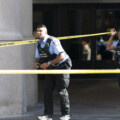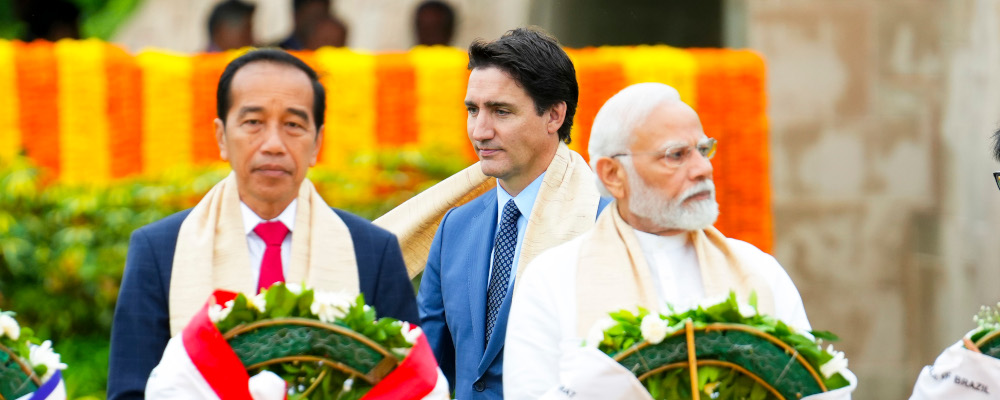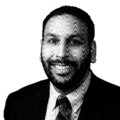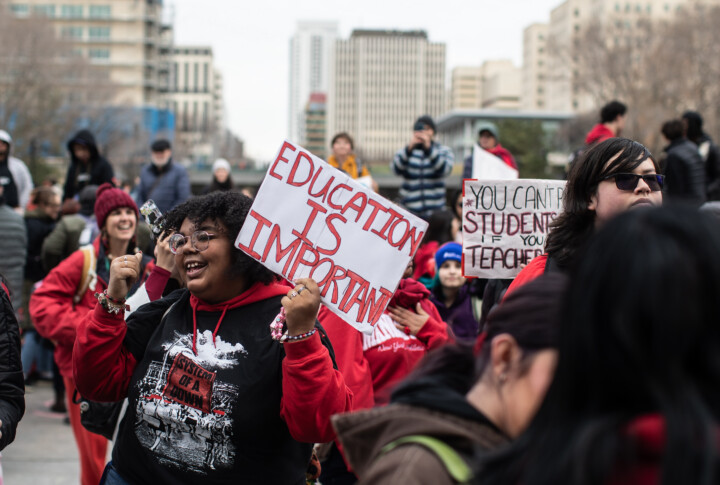In an iconic line from the 1974 neo-noir classic Chinatown, corrupt Los Angeles water commissioner Noah Cross quips to hardboiled private investigator Jake Gittes, “Of course I’m respectable, I’m old. Politicians, ugly buildings, and w—-s all get ‘respectable’ if they last long enough.”
After what is his eighth appearance as prime minister of Canada at the UN General Assembly, Justin Trudeau may well be asking what makes him the exception to this rule.
Trudeau’s visit to the United Nations in New York came just a week removed from a disastrous showing at the G20 summit in Delhi. Trudeau’s rough weekend in the Indian capital saw him get a cold shoulder from his fellow world leaders; ending, humiliatingly, with a sharply worded (and very public) rebuke from the host nation’s leader. The chilly relations are especially explicable now, given we’ve learned that Trudeau confronted Prime Minister Narendra Modi with serious allegations of an extra-judicial, extra-territorial killing of a Canadian citizen on Canadian soil by Indian security services. Canada and India have each now expelled top diplomats.
And to add insult to injury, the prime minister and his entourage were forced to stick around India for an extra day last week when mechanical issues left the Canadian delegation’s plane stuck on the tarmac at a Delhi airport.
The India fiasco comes on the heels of weeks of bad international press for Trudeau, much of which has excoriated him for allowing Canada to become a liability to the NATO defence alliance under his watch. (According to a recent U.S. intelligence leak, Trudeau has privately told NATO officials that Canada will “never” meet the alliance’s defence spending target of two percent of national GDP.)
Trudeau has also ruffled feathers, of late, with his penchant for moralizing on the world stage; for instance, calling out Italian Prime Minister Georgia Meloni for her government’s record on LGBT issues at this May’s G7 Leaders’ Summit in Hiroshima, Japan.
Trudeau once again reached into his intersectional bag of tricks last weekend when asked what the Canadian delegation contributed to G20 summit-concluding communiqué; replying (with a straight face), “gender language (and) Indigenous reflection.” One could almost feel the groan this response elicited halfway across the world in Canada.
Now the longest-tenured G7 head, and one of the world’s most seasoned leaders, Trudeau should, in theory, be a force to be reckoned with in the international arena—a domain that, historically, has been dominated by elder statesmen in the vein of Churchill, de Gaulle, Mandela, and King. However, far from settling into the role of éminence grise, Trudeau remains something akin to the Rodney Dangerfield of global politics: no matter what he does, he just can’t seem to “get no respect”. Case in point: Canada’s closest allies have so far fallen short of offering full-throated support on the India imbroglio.
So why hasn’t longevity translated into influence for the long-tenured Trudeau?
One glaring issue with the Canadian premier’s foreign policy, throughout his eight years at the helm, has been a consistent gulf between words and actions. While rarely missing a chance to stand on a soapbox at this global summit or the other, Trudeau has noticeably lacked in follow-through. Setting aside Canada’s paltry defense spending, the Trudeau government has similarly underwhelmed in the humanitarian sphere, tacking a $1.3-billion (or 16 percent) cut to foreign aid to its latest federal budget.
“There is certainly a gap between rhetoric and reality,” said non-profit executive Kate Higgins in response to the budget cuts.
The Trudeau government has also been accused of falling short of its commitments to help arm a besieged Ukraine, despite Canada being home to the world’s second-largest Ukrainian diaspora behind Russia. Even more shameful was our abandonment of interpreters and other vulnerable helpers after our chaotic exit from Afghanistan two years ago. (The war-torn Afghanistan was the focal point of Canadian foreign policy for two decades, with Canada leaving its cultural imprint in the form of Tim Hortons and Hockey Night in Kandahar.)
Prime Minister Trudeau and his cabinet are understandably focused on domestic matters right now as they look to reverse a cost-of-living crisis that has wreaked havoc on their poll numbers. They cannot, however, afford to neglect Canada’s increasing irrelevance in international affairs—especially at a time of global flux driven by an uptick in Russian and Chinese aggression.

Trudeau’s predecessor Stephen Harper was similarly focused on domestic matters but nevertheless carved out a successful niche in foreign policy by knowing where to pick his battles. Harper stayed laser-focused on economic relations during his time at the helm, inking a record number of trade deals with both developed and emerging economies. He also prudently banked his global political capital, channelling it into a successful (if unheralded) push to improve maternal, newborn, and child health (MNCH) outcomes in the Global South.
By contrast, Justin Trudeau’s foreign policy evinces no such focus and boasts no comparable marquee accomplishment. With his days in the big chair likely numbered, it may already be too late for him to salvage his global legacy.
Justin Trudeau’s tenure as prime minister shows that experience doesn’t always equate to gravitas. He may continue to spit out all the right diplomatic buzzwords at global summits, but his fellow world leaders have long since tuned him out. Why, after all, should they care about what he has to say, given his long track record of overpromising and underdelivering in the international sphere?
If Trudeau won’t learn from the example of his predecessor on global affairs, perhaps he’ll heed the foreign policy advice of one Dwayne “The Rock” Johnson: “Know your role and shut your mouth.”
Recommended for You
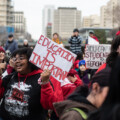
Why do activists want to shut down Alberta’s support for independent schools?
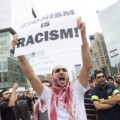
The government’s proposed anti-hate law is a necessary response to extremism

The government’s proposed anti-hate law is a threat to Canadians’ religious freedoms
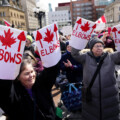
‘Every hand went up when asked who’s afraid of America’: Is Elbows Up just political hype?
